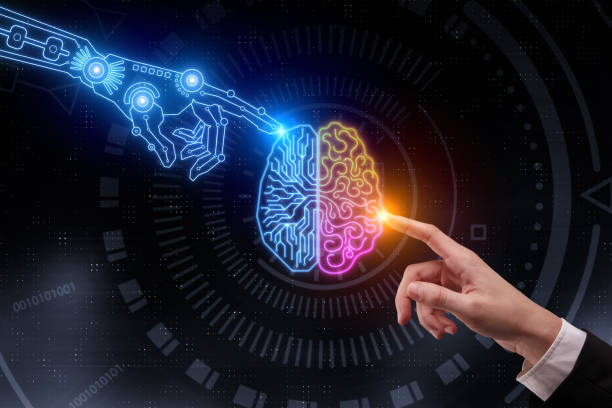What is, and what isn’t AI? Not an easy question!
The popularity of AI in the media is due to the fact that people have started using the term. When they refer to things that used to be called by other names. You can see almost anything from statistics and business analytics to manually encoded if-then rules called AI. Why is this so? Why is the public perception of AI so nebulous? Let’s look at a few reasons.
Reason 1: no officially agreed definition
Even AI researchers have no exact definition of AI. The field is rather being constantly redefine when some topics are classified as non-AI, and new topics emerge.
There’s an old (geeky) joke that AI is define as “cool things that computers can’t do”. The irony is that under this definition, AI can never make any progress. As soon as we find a way to do something cool with a computer, it stops being an AI problem. However, there is an element of truth in this definition. Fifty years ago, for instance, automatic methods for search and planning were consider to belong to the domain of AI. Nowadays such methods are tought to every computer science student. Similarly, certain methods for processing uncertain information are becoming so well understood. It is to moved from AI to statistics or probability very soon.
Reason 2: the legacy of science fiction
The confusion about the meaning of AI is made worse. By the visions of AI present in various literary and cinematic works of science fiction. Science fiction stories often feature friendly humanoid servants that provide overly-detailed factoids or witty dialogue. But can sometimes follow the steps of Pinocchio and start to wonder if they can become human. Another class of humanoid beings in sci-fi espouse sinister motives. And turn against their masters in the vein of old tales of sorcerers’ apprentices. Going back to the Golem of Prague and beyond.
Often the robothood of such creatures is only a thin veneer on top of a very humanlike agent. Which is understandable as most fiction – even science fiction – needs to be relatable by human readers. Who would otherwise be alienated by intelligence that is too different and strange. Most science fiction is best read as metaphor for the current human condition, and robots could be seen as stand-ins for repressed sections of society, or perhaps our search for the meaning of life.
Reason 3: what seems easy is actually hard…
Another source of difficulty in understanding AI is that it is hard to know which tasks are easy and which ones are hard. Look around and pick up an object in your hand, then think about what you did. You used your eyes to scan your surroundings, figured out where are some suitable objects for picking up. Chose one of them and planned a trajectory for your hand to reach that one. Then moved your hand by contracting various muscles in sequence and managed to squeeze the object. With just the right amount of force to keep it between your fingers.
It is hard to appreciate how complicated all this is. But sometimes it becomes visible when something goes wrong. The object you pick is much heavier or lighter than you expected. Or someone else opens a door just as you are reaching for the handle, and then you can find yourself seriously out of balance. Usually these kinds of tasks feel effortless. but that feeling belies millions of years of evolution and several years of childhood practice.
While easy for you, grasping objects by a robot is extremely hard, and it is an area of active study. Recent examples include Google’s robotic grasping project, and a cauliflower picking robot.
links : LinkedIn
(This are some of the LinkedIn links provided for you.)





